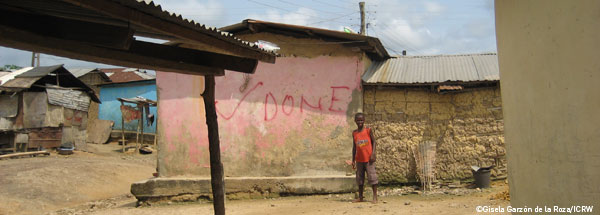
Vanishing tradition
26 October 2010
Media Contact
To the people of Dumasi, Ghana, land belongs to the dead, to the previous generations who settled and died on it. It also represents heritage, a cornerstone on which future generations can build their livelihoods. But they have seen their land disappear before their eyes. The Dumasi villagers soon will be resettled elsewhere. During my time here, I discovered a community in anguish, struggling spiritually with this reality and its corrosive effect on their very identity.
Their way of life has vanished. And their ancestors are mad.
In the 1980s, Ghana opened its market to foreign investors to re-energize the mining industry. With the launch of large-scale mining operations, numerous communities anchored to the land were forced to resettle in areas peripheral to the mining operations, rapidly losing their traditional livelihoods. Gone is their historical practice of harvesting cocoa, extracting gold and other minerals, and foraging the surrounding forests for provisions such as thyme and snails.
I came to Dumasi, which is about six hours from Accra, to learn about the realities of women and men as they confront this dramatic change. I saw women struggle to feed their families and keep them healthy. Men spoke of feeling deprived of their authority. And many people, especially community “chiefs,” are ashamed of how life in Dumasi has been uprooted. The chiefs – men who traditionally serve as mediators between the community and its ancestors – feel helpless in the midst of the community’s hardships. They are ultimately held accountable for the loss of land. Now, the chiefs have lost recognition and respect.
All of the houses in Dumasi have been spray-painted with the word “DONE.” It means that the home is ready to be demolished so that mining companies can expand their operations on the land.
I was saddened and frustrated by the helplessness I saw in men’s and women’s eyes here. But in the children, I witnessed a glimpse of hope.
Perhaps they are not “done” after all.

